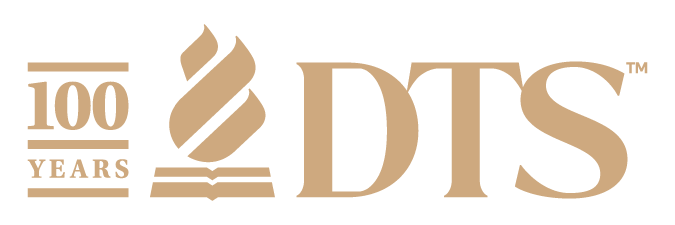Degree Overview
| Total Hours | 32 credit hours (if Greek and Hebrew proficiency exams passed) |
| Degree Time Limit | 6 years from first DTS class |
| Real-time courses | 0 courses required (Not all courses may available through OL, RV, or LS) |
| Satisfactory Academic Progress (SAP | 12 hours per academic year |
Priorities
- Select an STM major (any DTS department). Students should discuss possible major based upon their location with their Academic Advisor.
- Request Language Proficiency Exams
- Greek Proficiency Exam
- The Hebrew exams are not available online and must be proctored on-campus or at the student’s location. Please contact Tina Karnes, OT Department Administrative Assistant, about arranging this exam: tkarnes@dts.edu
- Schedule a meeting with the STM Academic Advisor to initially remove the STM Advising hold and begin filling out the STM Worksheet. A few questions that will help clarify your degree plan are:
- Where are you planning to study (Dallas, Houston, Online, etc.)?
- Do you intend to pursue a PhD in the future? If so, will this be at DTS?
- Where do you need to grow in your discpline or major based off your previous education, ministry experience, and possible future studies?
- After the Advising meeting, students may register for the first semester based off the recommendations from the Academic Advisor. A different hold will be placed on the student’s account preventing registration for the second semester until the Degree Worksheet/Plan is signed by the student, department chair, and academic advisor.
First Semester (or before):
- Students meet with the Department Chair in their major. In this meeting, students will finalize the specific electives taken in that department in view of upcoming courses and the student’s academic and ministry goals. If students intend to apply for the DTS PhD, then clarification about specific or recommended courses should take place and suggestions regarding RS5102 or a Thesis.
- The Advising Center created a document “Nine Things to Know about RS5102 and Thesis” to help students understand basic differences between these two options.
- At the end of the meeting or shortly after meeting with the Department Chair, the student should send the completed STM Worksheet to the department chair for approval. Once the student and department chair sign this form, it should go to the Director of Academic Advising for final review.
- Once signed and approved, the STM Worksheet is scanned into the student’s file and the Advising hold is removed from the student’s account. Any changes to the STM worksheet will require an updated and approved Worksheet.
- Familiarize yourself with the Academic Success Resource Center for various tools and links to assist with your courses.
Students follow the degree plan approved by the Department Chair and Academic Advisor. If students have questions or possible changes, please meet with your Academic Advisor to discuss possible next steps.
What is required for Graduation?
- After 24 credit hours, students must submit the Admission to Candidacy Application (including all references) by the deadline listed for each semester on the Graduation Information page.
- Confirm the Graduation Date listed in the system corresponds to your plan with your Academic Advisor and/or Registrar’s Office. (Update graduation date here)
- Review/Confirm upcoming semester plans with an academic advisor to ensure all degree requirements are met.
- Students should indicate their plans to participate in spring Commencement using the Commencement Ceremony Participation application during the available dates and after being approved for Candidacy.
If students anticipate doctoral studies, then plans should be made to apply and submit all accompanying documents by the appropriate deadlines at DTS or at another school. This will require some planning and preparation. Students should discuss future plans with faculty, staff, or peers serving in their field for guidance and prayer.
STM students may also benefit from a meeting with Career Services to discuss their ministry resume, interview skills, and ministry opportunities.
Resources
Master’s level students keep their current Logos Bible Software package. Future Logos updates or upgrades are the responsibility of each person and not done through DTS.
DTS graduates have three options for further training:
- Self-paced learning through Online Videos – All online courses and lectures are available for graduates to access through the Alumni portal. No application is required.
- Alumni nondegree – Graduates may take additional DTS courses as a nondegree student, either for audit or credit at a reduced rate. If students take courses for Alumni nondegree credit and want to use the course(s) toward another Master’s degree, then the student will need to pay the difference of tuition between the Alumni rate and current tuition rate.
- Pursue an additional DTS degree – Graduates may return to DTS to pursue a second Master’s degree or a Doctoral degree. Graduates must reapply through Admissions and previous DTS credits are reevaluated and remaining requirements are evaluated upon readmission. Doctoral degrees may require additional Master’s level work.




